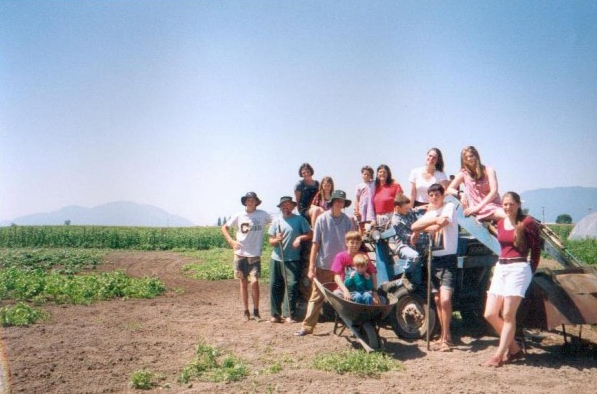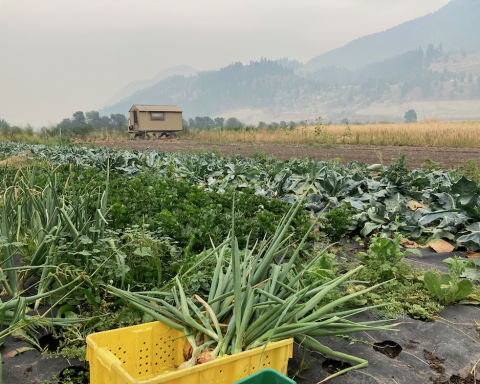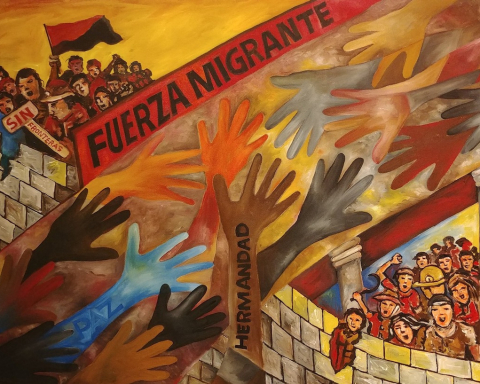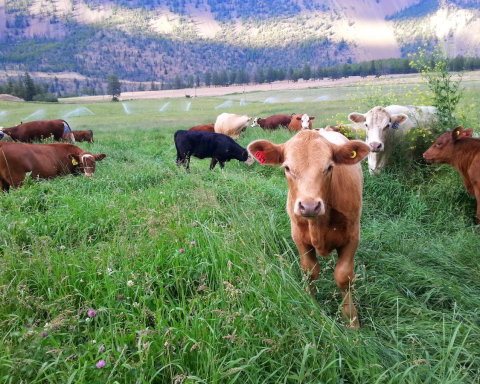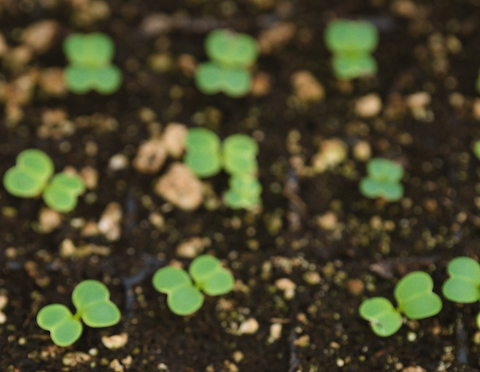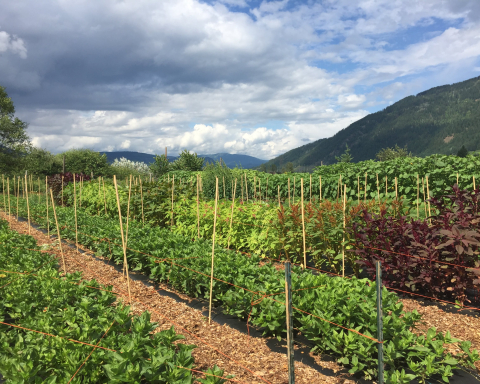The Birth and Evolution of Forstbauer Farm
Natalie Forstbauer
Bare feet, dirty nails, cheeks caked with dry soil, clothes weathered by the elements, the smell of earth lingering on me…getting lost in long grass, playing hide and seek in fields, singing camp songs while pulling out weeds…sitting under a canopy of blueberry branches while filling my mandatory bucket and having the occasional forbidden blueberry fight in the berry fields…
Dishes piled high and floors waxed with freshly-soiled feet as brothers and sisters run in and out of the house to fill tummies and play in between the farm responsibilities of looking after animals, picking beans, sorting carrots, and picking and cleaning blueberries…
The long hot days of summers on the farm had a beat of their own. There was a seamless rhythm that flowed between inward contemplation and outward expression. Creativity and free play were encouraged while routines and expectations were simultaneously enforced.
This was my childhood.
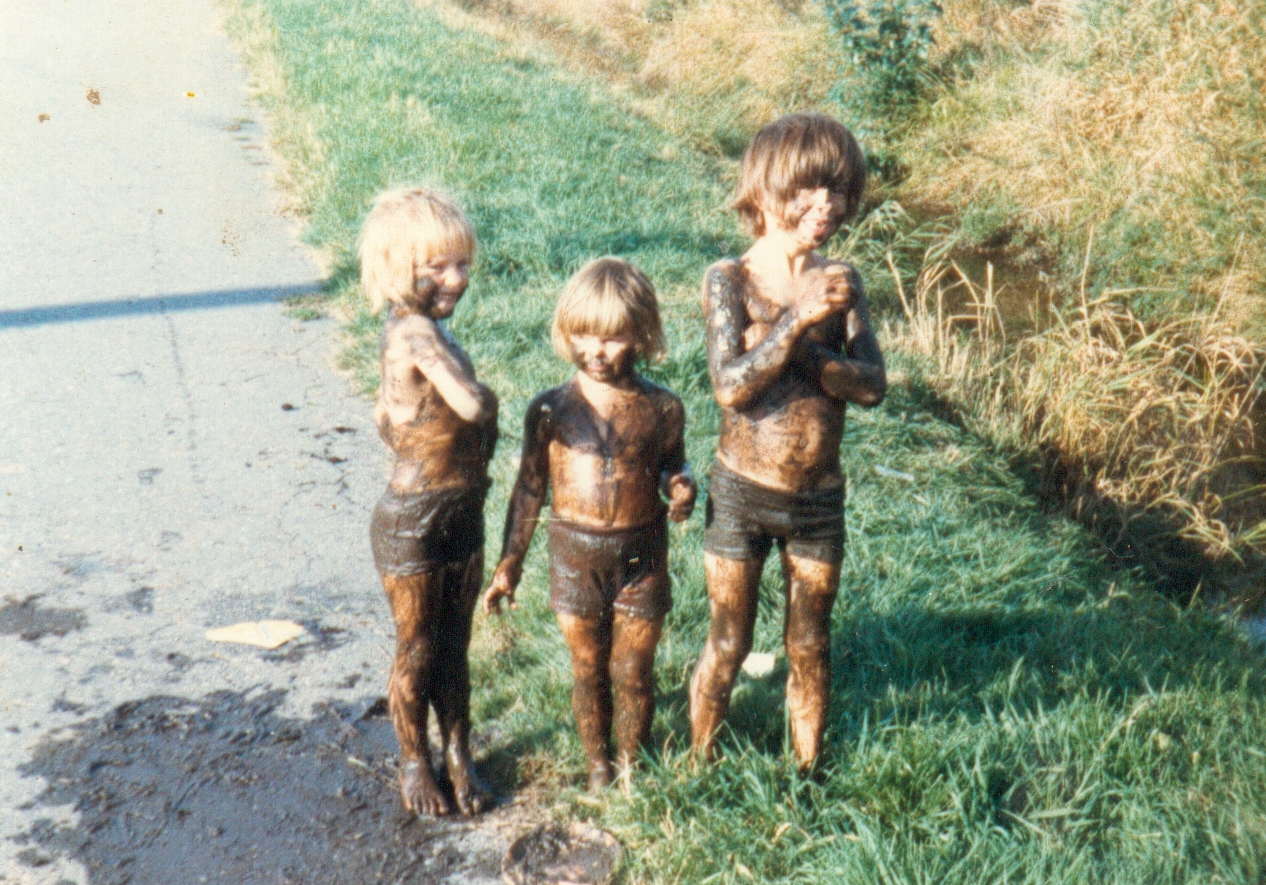
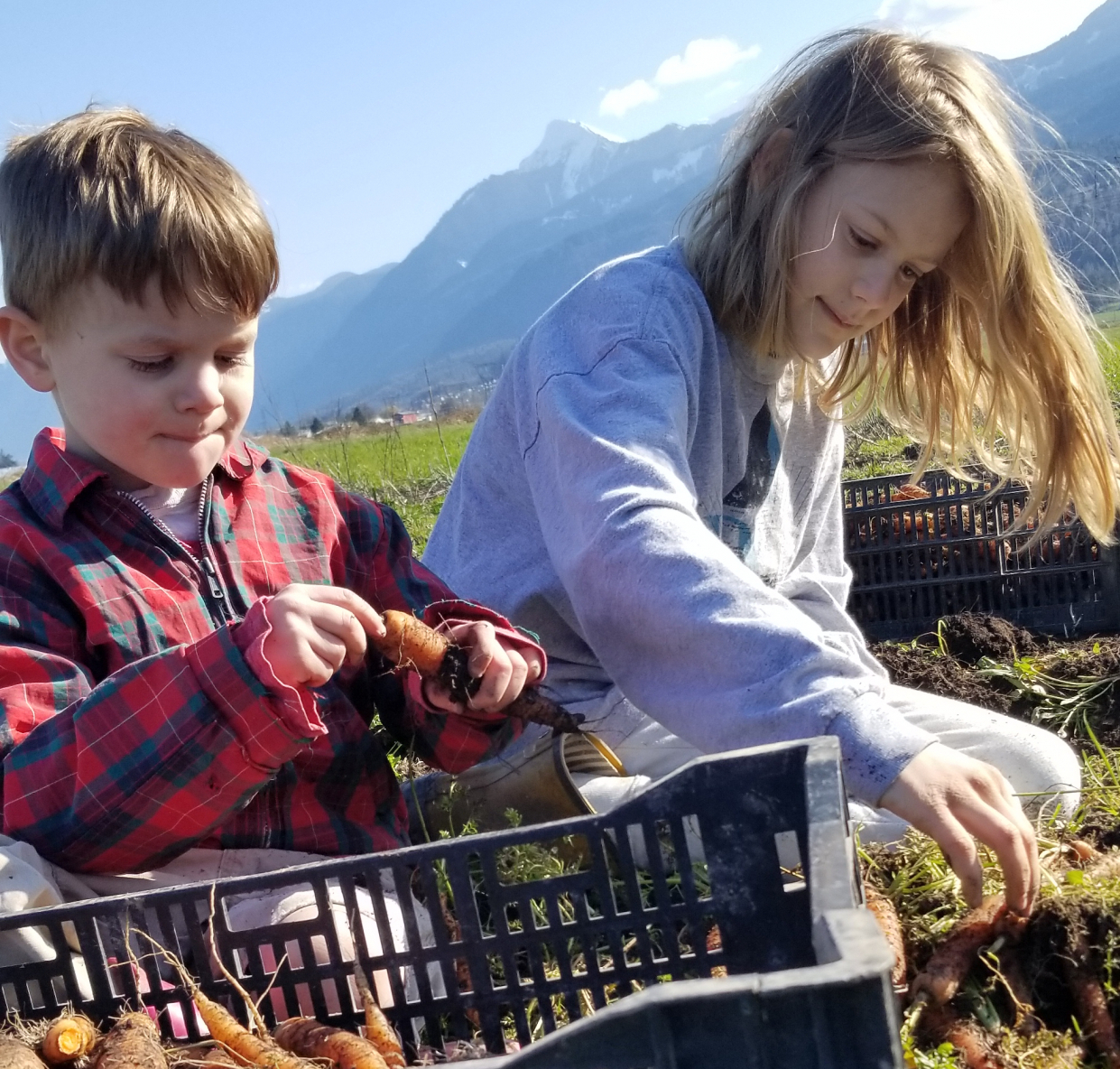
I am the oldest of 12 children from Mary and Hans Forstbauer. Growing up on Forstbauer Family Natural Food Farm with soil built up between my toes was a journey of connection, advocacy, and flow. The farm was the fabric that knit the family together and the family in turn melded the farm.
My dad was the rock that laid the foundation for the farm. His gift was stewarding the land while sharing his wisdom, insights, and visions with my mom. My mom was his window to the world. She had the gift of listening, compiling, and generously sharing these insights with communities where they were discussed, explored, and implemented.
My parents, along with their pioneering organic friends and colleagues, knew their regenerative farming practices needed standards and accountability. With due diligence they shaped the inaugural certified organic standards in BC.
The synergistic relationship between my parents was remarkable. While my mom was pioneering the advancement and the amplification of organic food and regenerative organic farming in the public eye, my dad nurtured the soil with grace. He knew healthy food and healthy humans begins with healthy soil.
He worked long days sandwiching his job as a carpenter with work on the farm before sunrise and after sunset. I’m pretty sure his morning began around 4:30 am every day to milk the goat and cows and ended after the sun went down tending to animals and other farm chores.
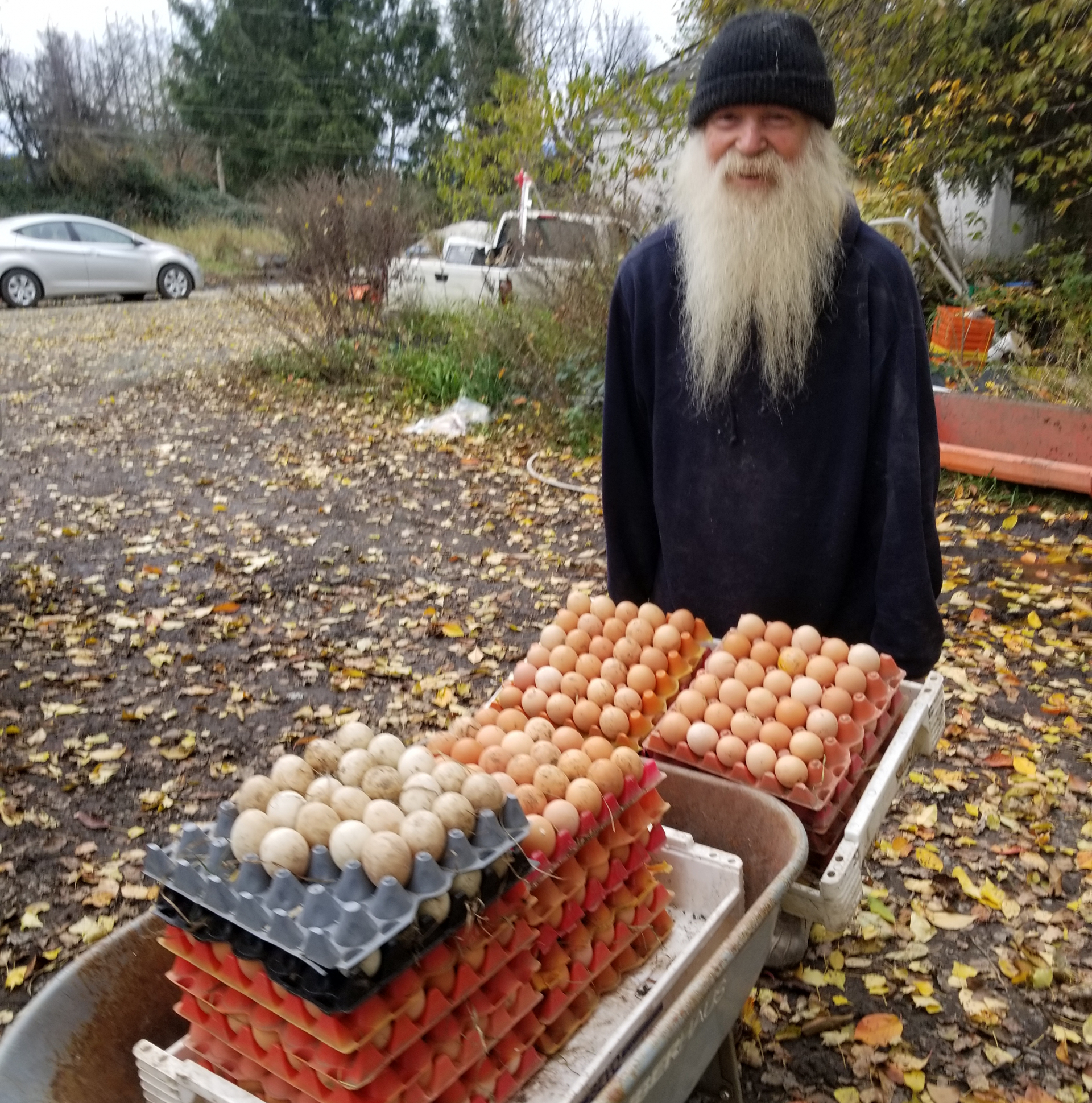
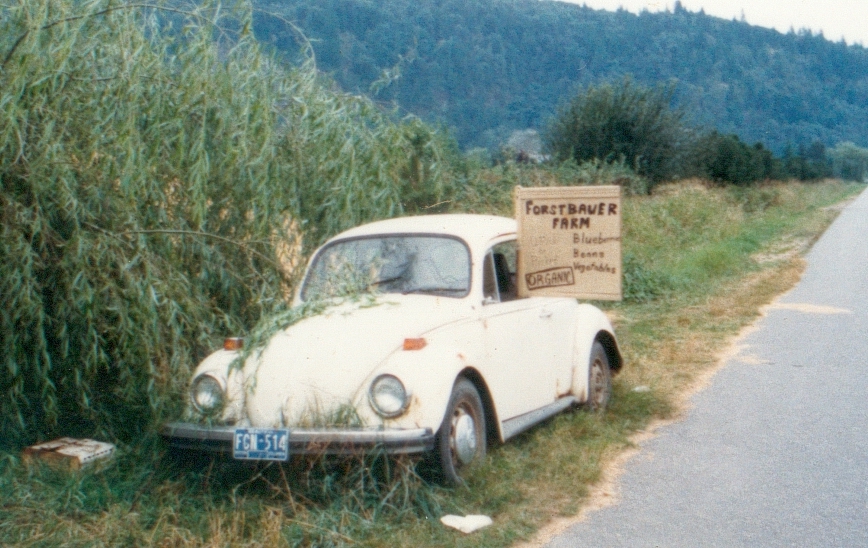
It’s often thought the farm “was started in the mid 1970s,” but my dad passionately shared with me recently that “planting your front lawn into a garden isn’t anything new. I did that when you were a baby and before you were even born.” In my dad’s eyes, that front lawn garden was the birth of Forstbauer Family Natural Food Farm. It’s when he and my mom began their farming journey. The year was 1970.
In 1971, they bought their first acreage in Mission, BC. It was a magical place at the bottom of a mountain surrounded by forest and rolling hills with a fresh stream running through a little valley to the east of the house. An old barn sat up on a hill north of the house and their massive garden was to the west. We had lots of animals: ducks, geese, chickens, a dog, cats, cows, goats, and a pony.
It was exciting when neighbours and friends came for fresh food from the farm. Equally as exciting was when I would go with my mom to make little deliveries to friends when we went into town.
In 1976, my parents sold their little acreage in Mission. They moved to Matsqui Prairies onto 16.5 acres. It was a beautiful spot pressed up against the mountain, home to an old blueberry field that had long been forgotten. My favourite part was the northern border of the farm where a freshwater stream came down the mountain side. The west coast rainforest that bordered the field was an enchanting place where we’d sink knee deep in moss, salmon came to spawn, and large evergreen trees clung to the sky.
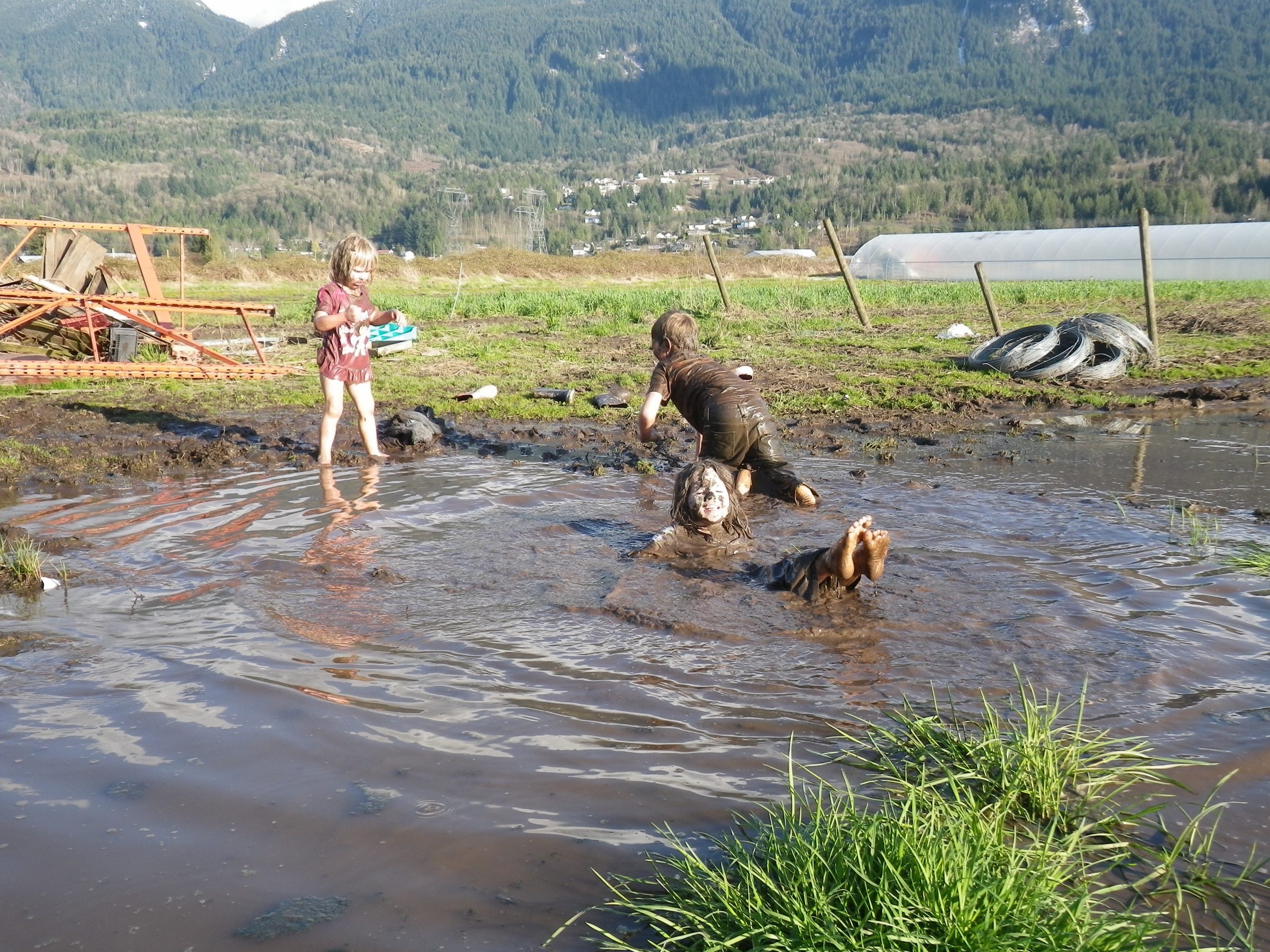
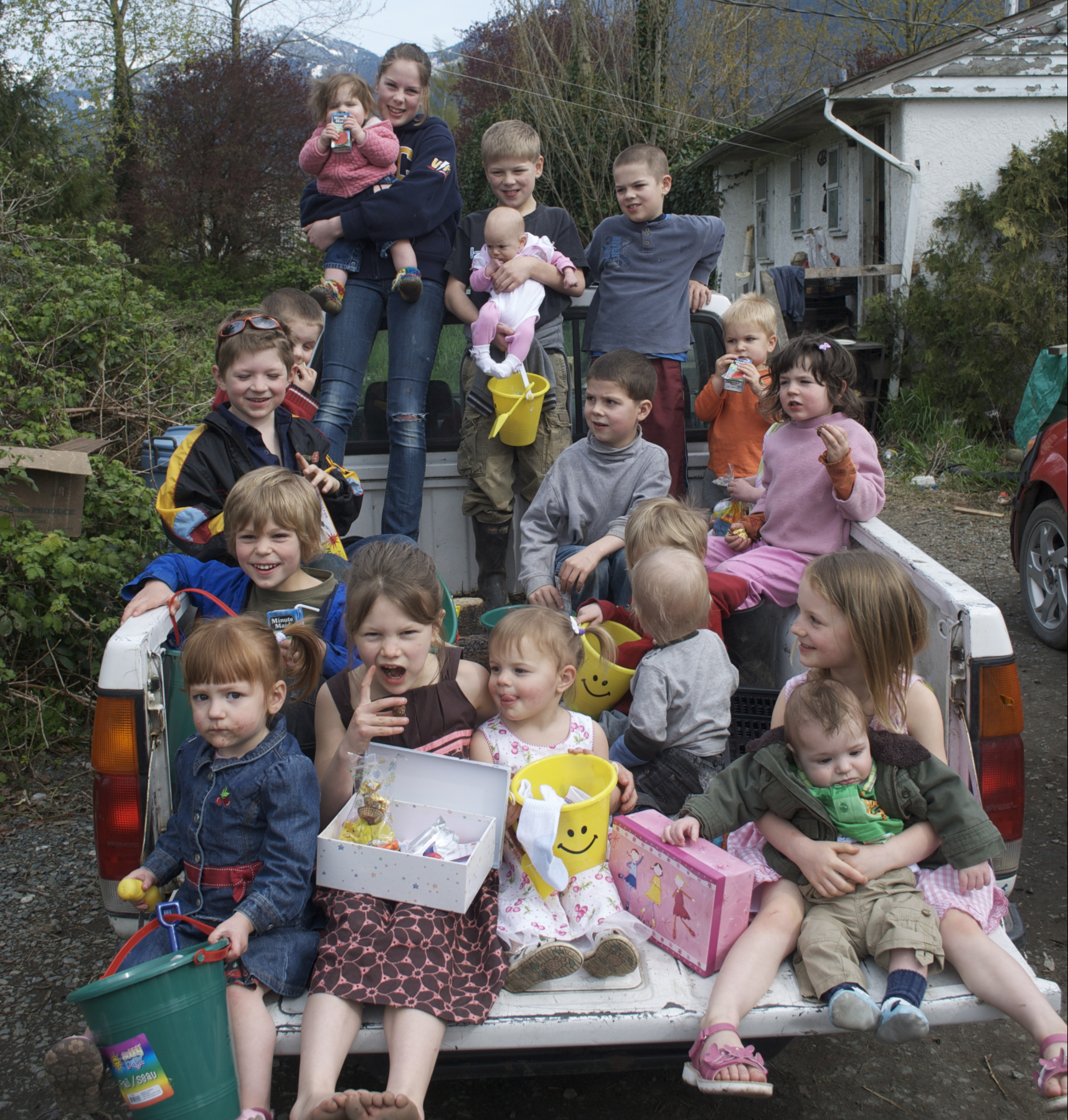
My dad was industrious and, similar to today’s urban agriculture trend, vegetables were squeezed into every square space. Our first sales were to customers who came to our farm through word of mouth. Even our doctors shopped at our farm. As a young girl, I remember thinking we were doing something important.
My parents worked hard to find markets for their expanding bounty of produce and blueberries. The u-pick was an immediate success with cars lined up and down the rural road and a constant stream of pickers filling their buckets. We made weekly deliveries to Safeway, The Green Apple and other local produce stores.
Always the diligent guy, my dad (with the help of us kids) started making blueberry cuttings to supplement his income. Thousands of blueberry cuttings. It’s how blueberry bushes get their start. We would plant the cuttings, they would grow roots, we would transplant them the next year and then again the year after that and then we would sell them. Many of the older blueberry farms in Matsqui and surrounding Fraser Valley got their start from the cuttings we made.
During these years, Forstbauer Farm played a big role in marketing channels, including selling directly to organic warehouses, stores, and restaurants. We were one of the pioneering farms to sell to Wild West (the first organic warehouse in BC) and to Capers (now Whole Foods).
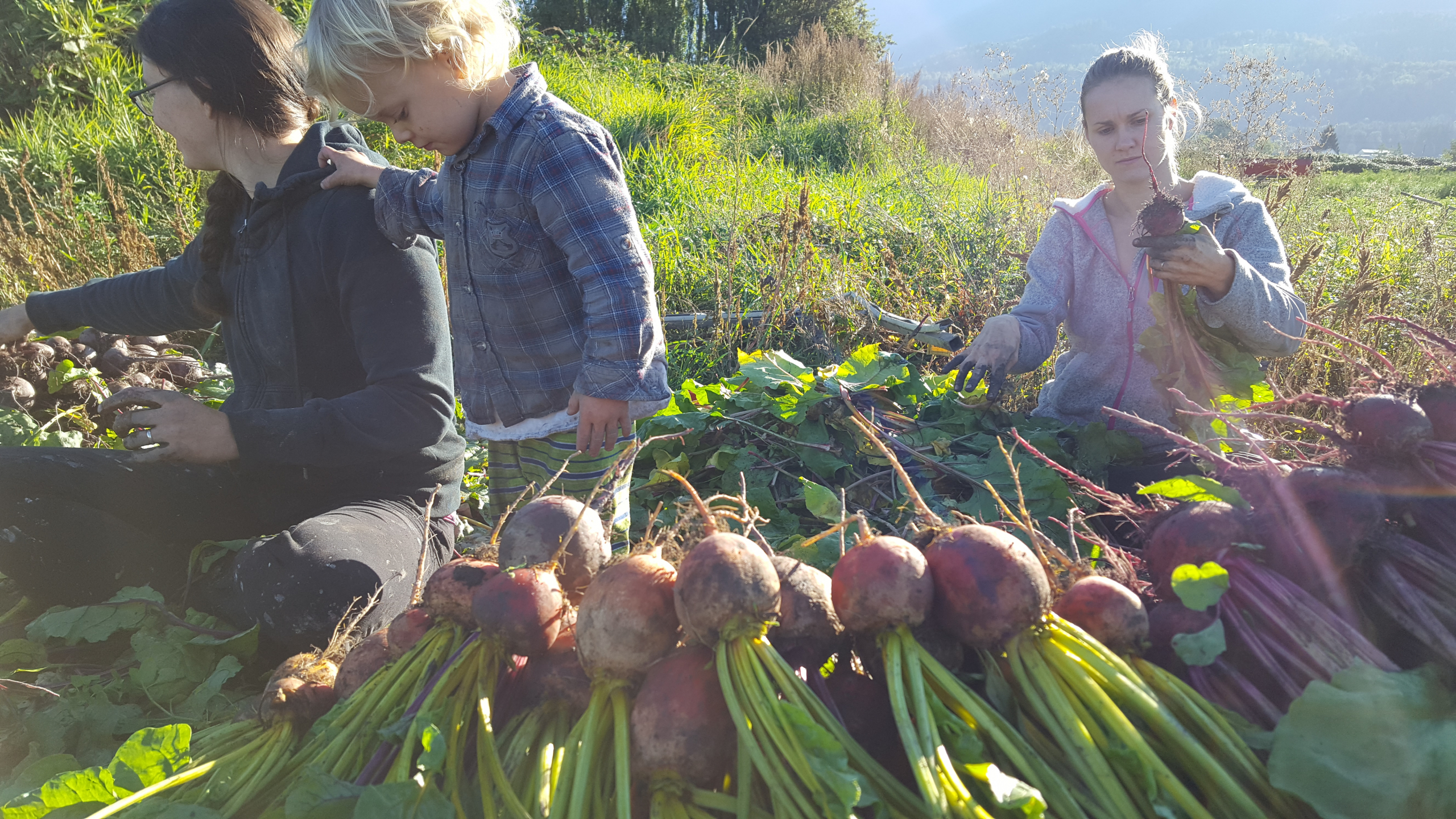
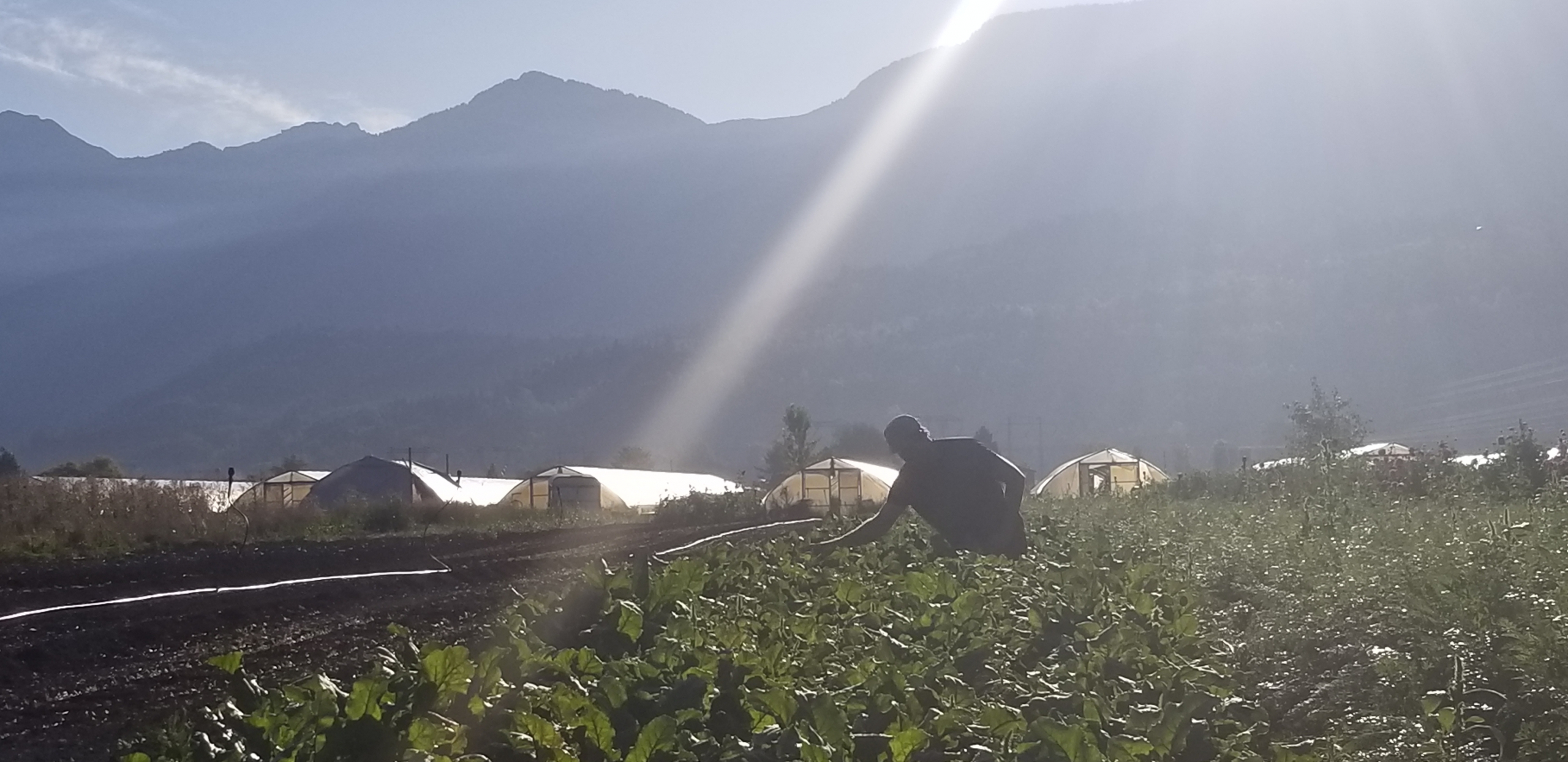
In 1989, my parents made a big move from Matsqui to Chilliwack, BC, expanding their farm to 110 acres. This was huge for all of us. By this time, I was 18 years old and graduating from high school.
In the first year, we had a massive bumper crop of pickling cucumbers with nowhere to sell them. On a tip from one of my mom’s friends, she took them to the Chilliwack Market—and sold out of the cucumbers. We’d have a stand full of fresh vegetables, but the swiss chard and kale craze hadn’t yet started, so we would always come home with everything minus the cucumbers and one or two bunches! The farm has been participating in and helping start up farmers’ markets ever since.
Today, Forstbauer Farm continues the legacy of growing healthy food in healthy soil. Travis, Niklaus, their wives, Katrina and Lindsey, their families, and my sister Rosanna continue in our parents’ footsteps championing organic and biodynamic farming. Between them, they participate on many boards, host biodynamic workshops, donate food to many causes, and sell fresh healthy food at farmers’ markets. Similar to many farms, on any given day, you may find a returning family member or visitor helping out.
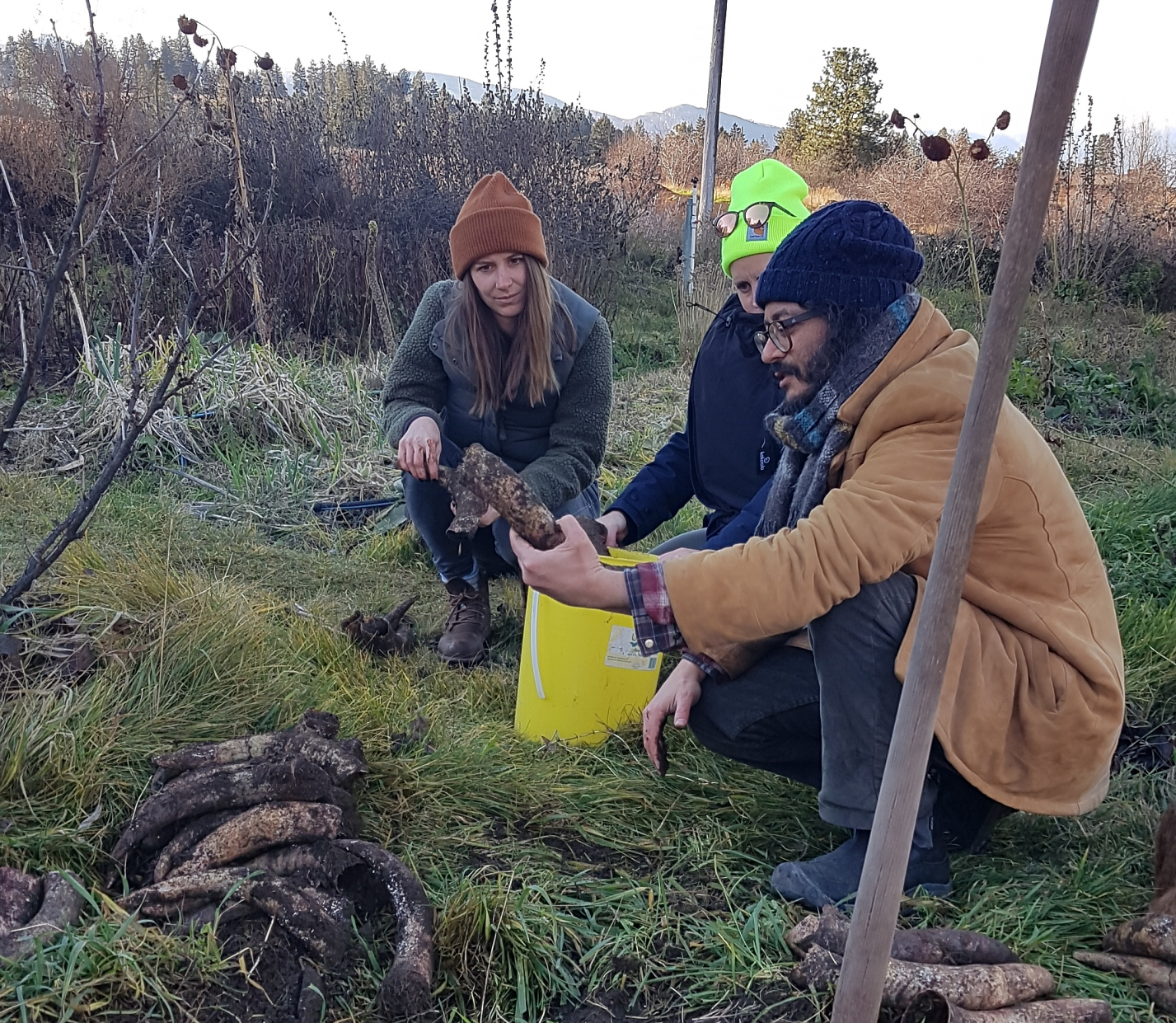
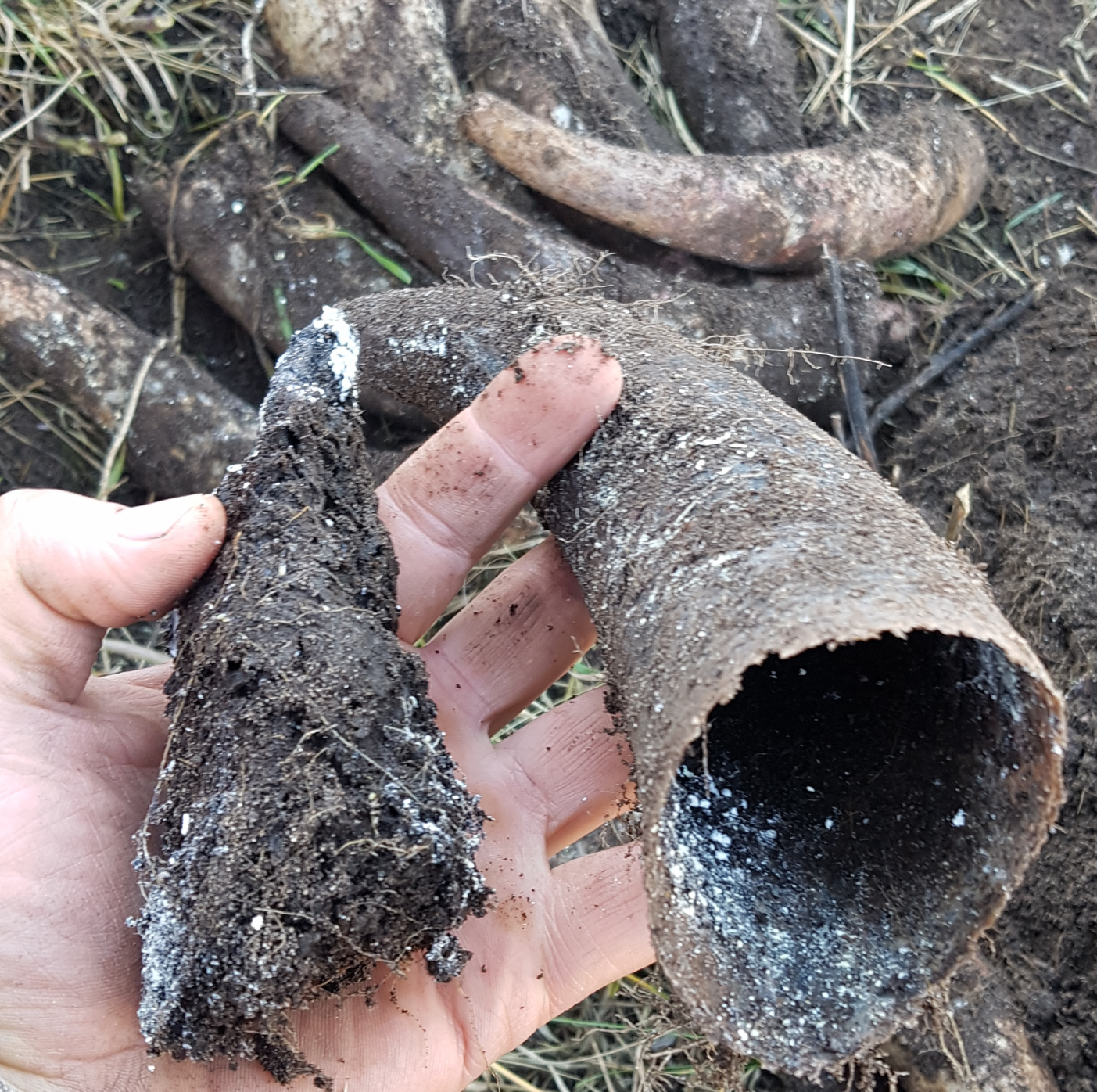
Being part of the farm has been a blessing to me and my children. Though the world is a different place today where connectivity is at an all-time high and connection at an all-time low, the farm remains a place where the history of connection is deeply rooted. I remember bringing my kids to the farm to see their cousins and to pick carrots, weed beets, and just have fun getting dirty. They would play tag, hide and seek, chase, and they would do talent shows for each other. After a big rainstorm they would play and jump in massive mud puddles deep from tractor tires.
My mom left this earth saying, “My biggest message is to teach children to love the land, to love the food they eat, and they will become great people in the circle of life.” Every farm has a story. Forstbauer Farm’s story is one of innovation, of advocacy, and of family. The farm is not a utopia. Similar to life, along with all the joy, mistakes have been made, hardships have been endured, and hurt has been sustained. Through it all, I am thankful for the lessons I’ve learned on how to live with gratitude and how to find my way through the weeds.
The farm continues to be a place where ideas are born and shared, a place of connection and love, and a place where the rhythm of the land flows. It is a testament that the energy we sow, nurtures the seeds we grow. Though my mom has passed, and my brothers and sisters have gone separate ways, the essence and legacy of Forstbauer Farm continues in those who built it.
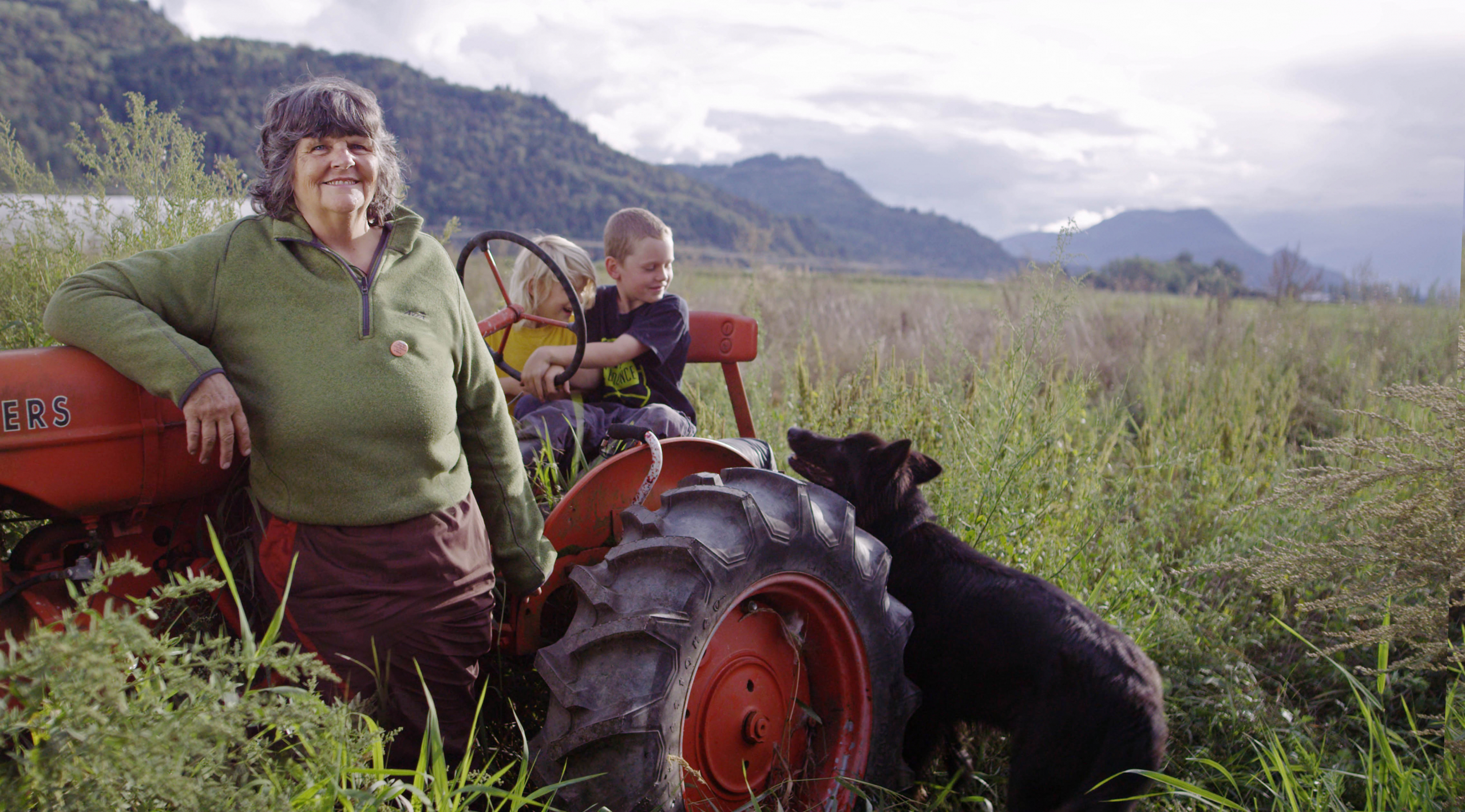
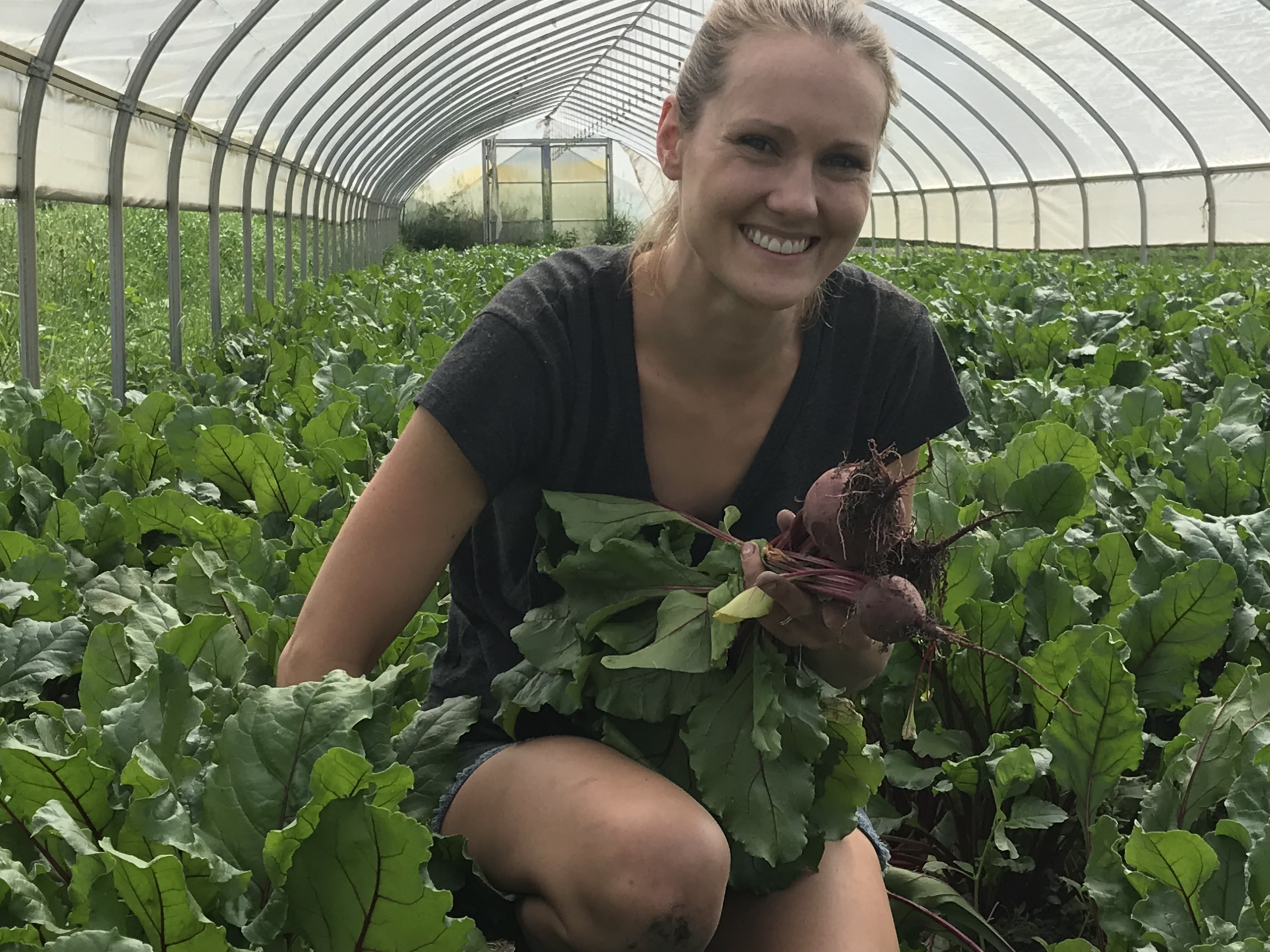
My dad speaks highly and thinks fondly of all his children. Eight of us are farming organically or biodynamically, four are teachers, three run their own businesses, one is a naturopathic doctor, and one an engineer. It adds up to more than 12 because some wear two hats! It gives him joy to see how we live our lives and contribute to making this world a better place.
As his wisdom deepens, his insights expand, and his vision sharpens, my dad is slowly letting go of some farming responsibilities and is entering a new chapter in his life. His passion is now channeled into his missions to have GMOs labelled, glyphosate banned, and to bring awareness to the power of nature. His strong conviction is that putting poison in food and changing the structure of nature is destructive and must stop. Simple yet profound shifts are the future for humanity: real food, daily movement, healthy relationships, mindfulness, connection to nature, and love.
COABC featured Mary and Natalie in a series of 2015 videos on organic farming in BC. Check them out!
Natalie Forstbauer is a farmer, author, TEDx Speaker and Editor-in-Chief of Heart & Soil Magazine, edited by Amanda Forstbauer-Bourrie.
Featured image: Forstbauer farm family. Credit: Forstbauer Farm.


